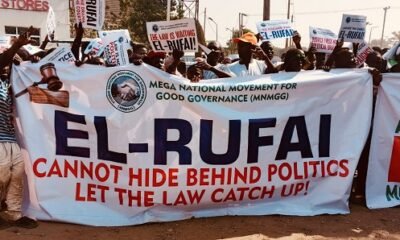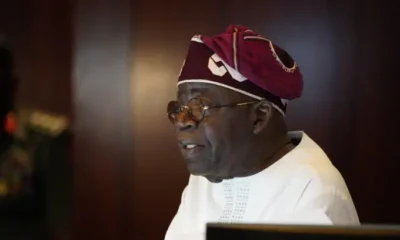Business
Leadway Pensure’s shares in First Bank belong to RSA holders, says PenCom
Funds invested in First Bank Holdings Ltd (FBNH) by Leadway Pensure Ltd belong to retirement savings account (RSA) holders, the National Pension Commission (PenCom) has clarified.
This would appear to put to rest claims that Tunde Hassan-Odukale and related entities own 5.36% stake in FBNH — which would have made him the single largest shareholder.
After Femi Otedola, the billionaire businessman, acquired 5.07% stake in FBNH, Seye Kosoko, the company secretary, had written to the Nigerian Exchange Limited (NGX) attributing Leadway Pensure PFA’s entire 2.11% stake to Hassan-Odukale.
Kosoko also listed 1.36% of the “ZPC/Leadway Assurance Prem & Inv Coll Acct” investment in favour of Hassan-Odukale.
With PenCom’s clarification, the shareholding attributed to Hassan-Odukale is likely to be whittled down to less than 4% with the classification of Leadway Pensure’s stake.
‘INVESTMENTS LEGAL BUT DON’T BELONG TO THIRD PARTY’
In a statement issued yesterday, PenCom said contrary to reports in sections of the media, Leadway Pensure Ltd did not break any laws by investing in FBNH.
However, the pension regulator said the equity investments in FBN Holdings made by Leadway Pensure Ltd on behalf of the pension funds under its management “are in the name of the pension fund and belong to the RSA” and “cannot be appropriated or classified as shareholdings of any related party to the PFA”.
“The Commission’s attention has been drawn to several publications in the media alleging breach of its Regulation on investment of pension fund assets by Leadway Pensure Ltd, a licensed Pension Fund Administrator (PFA), in the equities of FBN Holdings Plc.
The Commission categorically states that the allegations are NOT correct and must have been made based on the lack of understanding of the Investment Regulation issued by the Commission,” the statement reads.
“For the avoidance of doubt, the Commission wishes to clarify as follows:
“The equity investments in FBN Holdings made by Leadway Pensure Ltd on behalf of the pension funds under its management are in the name of the pension fund and belong to the RSA.
“Therefore, the equity investments in FBN Holdings Plc as stated in (1) above, cannot be appropriated or classified as shareholdings of any related party to the PFA.
“Leadway Pensure Ltd is not in breach of the Investment Regulation by investing pension funds in the equities of FBN Holding
“Records which can be confirmed from the Securities and Exchange Commission show that the equity investments in FBN Holdings Plc are in the name of the Pension Fund on behalf of the RSA holders.
“For further clarification please note that:
Pension fund assets are managed by licensed PFAs and held in custody by Pension Fund Custodians (PFCs) on behalf of Retirement Savings Account holders and other beneficiaries of the Contributory Pension scheme (CPS), in line with the provisions of the Pension Reform Act 2014 (PRA 2014).
Section 69 (b) of PRA 2014 stipulates that the PFA and PFC shall take reasonable care that the management or custody of the pension funds is carried out in the best interest of the retirement savings account. Therefore, all investments made by licensed PFAs in eligible securities and corporate entities are “ring-fenced” and belong to the RSA holders and other pension beneficiaries. Accordingly, these pension assets cannot be appropriated directly or indirectly to any individual or related party of the PFA.
The provisions of Section 6.1(iii) of the Investment Regulation dealing with conflict of interest, stipulate that “The PFA or any of its agents are prohibited from investing Pension Fund Assets in the shares or any other securities, issued through public or private placement arrangements, by related party/person of any shareholder of the PFA”. Related persons/party as defined in Section 1.10 of the Investment Regulation “includes natural persons related by blood, adoption or marriage; legal entities one of which has control or significant influence over the other, or both of which are controlled by some other person or entity; a corporate entity where any of the aforementioned holds 5% or more beneficial interest; and any other relationship that can be reasonably construed as related persons or parties”.
“In view of the foregoing, the Commission reiterates that there was no breach of its Investment Regulation whatsoever and invites the general public to be guided.
“The Commission restates its commitment to fulfilling its regulatory and supervisory functions as well as ensuring the safety of pension assets and the soundness of the Pension Industry.”





















